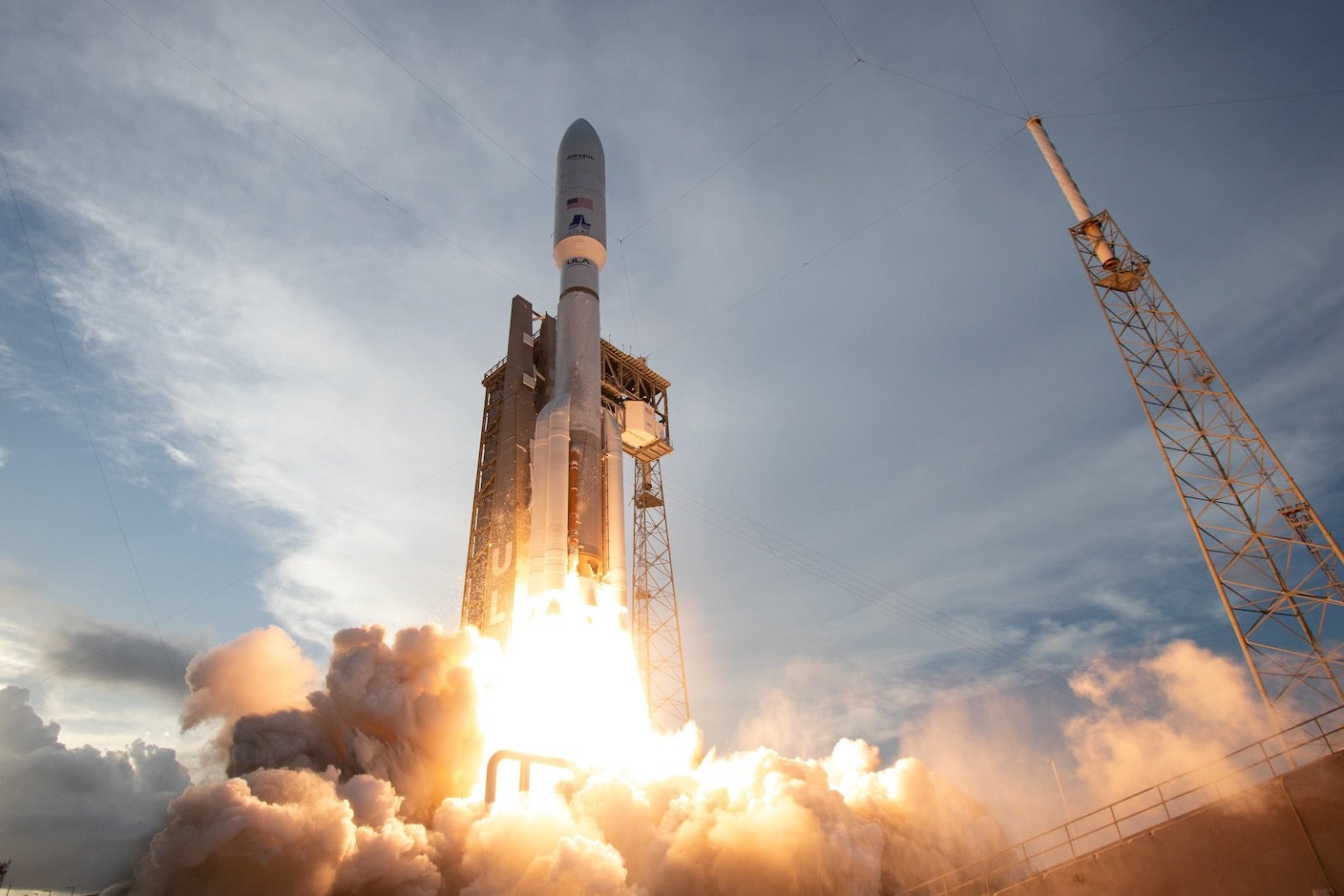To compete with Starlink, Amazon’s Project Kuiper plans to send over 3,000 internet satellites to orbit.
Satellite broadband could bring internet to every corner of the globe, but at present it’s dominated by one company—SpaceX. That could change soon. This week, Amazon launched the first batch of satellites for its Kuiper constellation.
While it might seem an extravagant way to get online, SpaceX’s Starlink system has proven very popular, with more than five million customers worldwide. But with a receiver priced at $349 and monthly subscription charges between $80 and $120, it’s not cheap.
Competition may bring those prices down soon. European provider OneWeb and China’s Spacesail constellations are already providing limited service to customers. And earlier this week Amazon kicked off the development of a planned constellation of over 3,000 satellites dubbed Project Kuiper by launching its first 27 broadband satellites.
“While this is the first step in a much longer journey to launch the rest of our low-Earth orbit constellation, it represents an incredible amount of invention and hard work,” Amazon CEO Andy Jassy said on X after the launch. “Am really proud of the collective team.”
The first batch of satellites were carried into low-Earth orbit by a United Launch Alliance Atlas V rocket, which blasted off from Cape Canaveral, Florida on Monday. The company confirmed all 27 have been switched on and are communicating with ground stations. The satellites were launched to an altitude of 280 miles but will now use electric propulsion to gradually ascend to a final operating altitude of 392 miles.
The company had earlier launched two prototype satellites in 2023, before de-orbiting them. But in a pre-launch statement the company said the new batch of satellites have been upgraded significantly, including new phased array antennas, processors, solar arrays, propulsion systems, and optical inter-satellite links.
ULA could launch as many as five more missions this year, according to Reuters, and over 80 missions are already lined up with ULA, European launch provider Arianne Space, and Amazon executive chairman Jeff Bezos’ Blue Origin. But the company is well behind schedule, with this initial launch delayed by more than a year.
SpaceX has already launched 8,000 satellites and is now launching at least one Starlink mission every week to expand access and replace older satellites. Given that kind of head start and the associated operational experience, it may be hard for Amazon to knock SpaceX off its perch as the leading space-based broadband provider.
But Bezos has said there’s enough demand for both companies to thrive, and Amazon executives have told Reuters they believe Amazon’s experience in building successful consumer products and its already dominant cloud computing business will be major selling points for customers.
Given the roughly $20 billion it may cost Amazon to complete Kuiper, the company must be confident of some significant upside from the project. But there are growing concerns that it will add to the already significant problem of over-crowding in low-Earth orbit.
Starlink satellites perform around 50,000 collision-avoidance maneuvers every six months, according to SpaceX. Hugh Lewis, a space debris expert at the University of Southampton in England, told Scientific American that the addition of thousands more spacecraft by Kuiper and other mega-constellations could cause this number to grow to tens or even hundreds of millions a year, making an eventual collision more or less unavoidable.
Such a collision could be catastrophic, as it would litter low-Earth orbit with space debris and make navigation much harder. In a worst-case scenario, it could lead to a scenario known as the Kessler Syndrome, in which a chain reaction of collisions fills Earth’s orbit with debris making it unusable.
Given the vast sums invested by these companies to build mega-constellations, they have most likely given thought to these kinds of problems. But we’ll have to hope our desire to boost connectivity doesn’t end up bringing the space age to an abrupt end.
The post Amazon Steps Into the Ring With SpaceX by Launching Its First Batch of Internet Satellites appeared first on SingularityHub.

